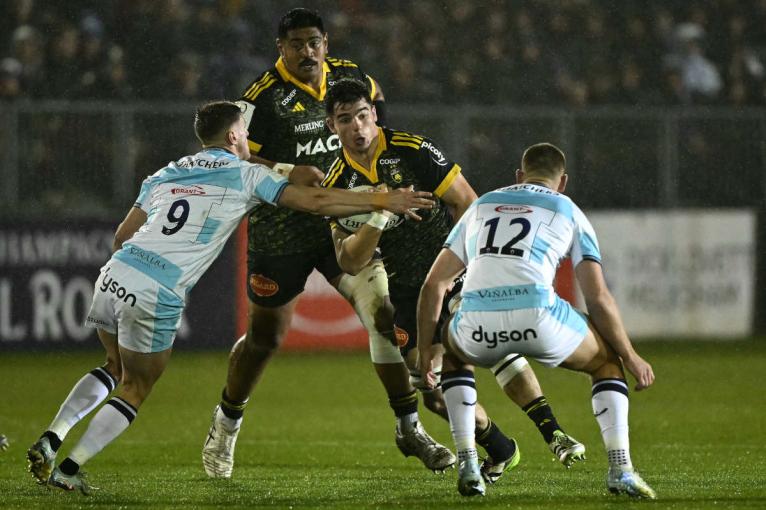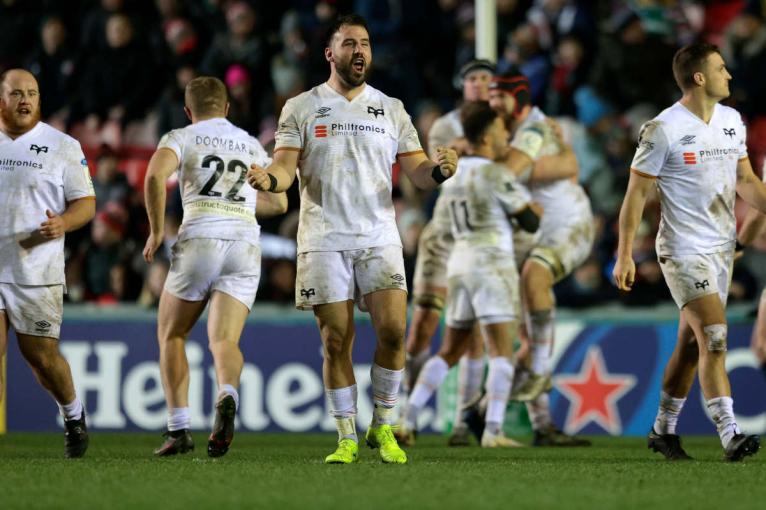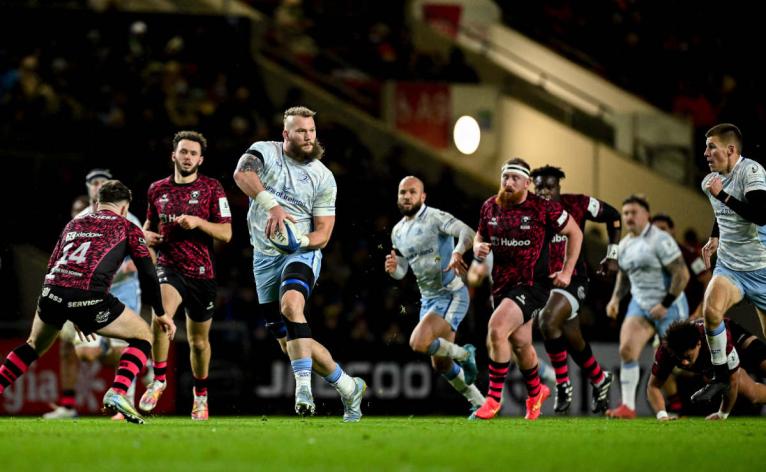At first glance there is something pleasingly balanced about the make-up of this season’s Champions Cup.
Twenty-four sides involved – eight each from the Top 14, Premiership and URC. That’s fair then, right? As it should be? A best-of-the-best tournament run on gloriously meritocratic lines?
On the surface, yes, but not in reality. There’s a problem with this season’s Champions Cup. There are too many English clubs.
For eight out of the 10 to be herded into Europe’s blue-riband club competition makes a nonsense of the VIP queue.

It is almost harder not to qualify for the English team.
It would better reflect the current balance of power in the game if one Premiership club was chopped for an extra French club to be brought in.
It would also improve the spread of the tournament if another Premiership side was replaced by a Welsh region.
The big picture is that the more diversity there is, the better it is for the competition.
It just doesn’t feel right with no Welsh representation for the first time this season. The Welsh game may be at a low ebb at the moment but there is an ingredient missing from the pot.
The Champions Cup is an international competition so its make-up should be as international as possible.
“It is sad because you want representation,” said Ospreys head coach Toby Booth. “The big picture is that the more diversity there is, the better it is for the competition. The game is struggling a little bit and having a Welsh side in there would add to it.

“It aids the credibility and visibility of Welsh rugby to be in there which is definitely what is needed because everyone is finding a reason not to support it, rather than a reason to support it, at the moment and that’s something we all have a responsibility to try to change.
“We need to grow the game at the very top level and this is a competition that helps people do that.”
Ospreys would have been involved this season, having finished eighth in the URC last term, but they were elbowed out by a lower-placed side from the same league – South Africa’s Sharks – winning the European Challenge Cup.
While it is right that the carrot of Champions Cup qualification is dangled for the Challenge Cup winners, a place should be reserved for a Welsh, Scottish and Italian team every season to enhance the mix. For consistency, Ireland and South Africa should be covered too, although a backstop in their cases would be purely hypothetical.
The current strength of the Premiership does not warrant 80 per cent of its clubs being involved.
The detractors would say that adding a Welsh side would dilute the quality of the Champions Cup. The Welsh regions have not exactly been lighting up the tournament of late but neither have they been a total embarrassment.
Scarlets made it to the semi-finals in 2017/18, since when Welsh regions have twice reached the knockout stages – including Ospreys as recently as 2022/23.
“Competition integrity is part of it and maybe gets magnified because of where we are with Welsh rugby,” said Booth. “We still need to be good enough to compete in that competition, but I don’t see it necessarily as us making up the numbers.

“In the year we qualified as Welsh Shield winners, we beat the French champions (Montpellier), the English champions (Leicester), we got to the knockout stages and narrowly lost out to Saracens.”
The reality is that a Welsh region is not going to win the Champions Cup any time soon but with the greatest respect to Exeter and Leicester, the two lowest-ranked of the English qualifiers, neither are they this season.
The current strength of the Premiership does not warrant 80 per cent of its clubs being involved.
You want teams to qualify on merit but not because you finish eighth in a 10-club league.
Booth, as an Englishman looking in from the outside, is able to see that clearly.
“It doesn’t make any sense. It is disproportionate for sure,” he said. “The rules have stayed the same but the context is different because there are three fewer teams in the Premiership.
“You want teams to qualify on merit but not because you finish eighth in a 10-club league.”
The current qualification quota implies that the Premiership is the equal of the Top 14, which it isn’t.
The last four winners of the Champions Cup have been French (Toulouse and La Rochelle, twice each).

One round of games is a small sample size but, unless Leinster come good, it has the scent of a French tournament again this season.
Six French clubs won last weekend and just two English clubs. Saracens had a decent win against the Bulls on their home patch and Northampton saw off a weakened Castres at Franklin’s Gardens, but that was it for the Premiership.
The English remain capable of landing a few spectacular blows – Harlequins won at Bordeaux and Exeter triumphed at Toulon last season after all – but no-one should be in any doubt where the real power lies.
The Premiership has its place – its internal competitiveness and its entertainment level is admirable – but the depth of squads are not comparable with the French clubs and Leinster.
Partly that is down to choice with a £6.4m salary cap in place. Had Bristol been free to spend Steve Lansdown’s fortune, the Bears might have been able to better combat a Leinster bench amped up to the heavens by the likes of Jordie Barrett and Caelan Doris last Sunday.
Forget the fake equality. The Champions Cup should move to nine French clubs, nine from the URC – with backstop powers for each nation – and six from the Premiership.
But for most Premiership clubs the cap is less a hindrance than a welcome mechanism to safeguard their future.
The fact is that with a TV deal in France which dwarfs that in England, the Top 14 clubs simply have more spending power.
It may not be the situation forever but for the time being, the Premiership is the support act compared to the Top 14 and Europe needs recalibrating to reflect it.
Forget the fake equality. The Champions Cup should move to nine French clubs, nine from the URC – with backstop powers for each nation – and six from the Premiership. That would break down as 64 per cent of the Top 14, 60 per cent of the Premiership and 56 per cent of the URC.
All round, that would be a much more accurate reflection of the state of play.



